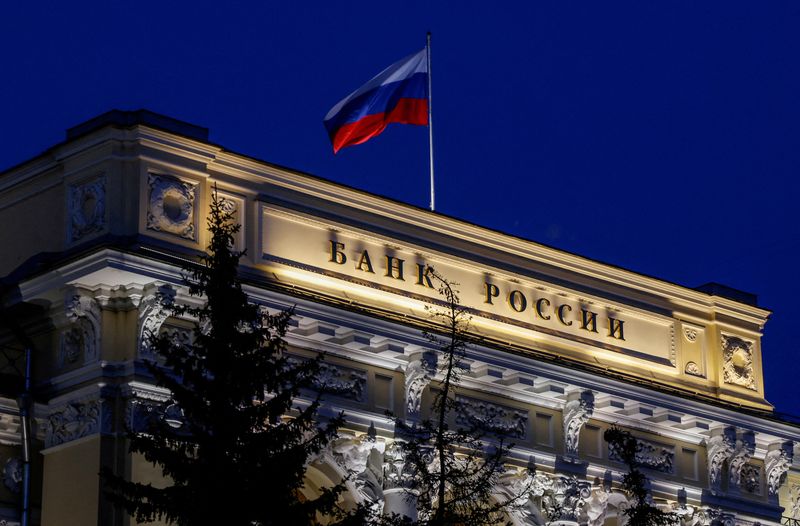(Reuters) - Russian Central Bank Governor Elvira Nabiullina said on Friday that controls on foreign currency flows should not pose difficulties for economic actors, and should remain limited to their role as a mirroring operation.
Russia has been forced into a number of emergency measures to keep foreign trade and payments flowing and shore up the rouble since the West imposed sweeping economic and financial sanctions last year in response to Moscow's invasion of Ukraine, which it calls a "special military operation".
"We applied currency control measures in the spring to stabilise the situation in the financial market. Now, currency control measures, in my opinion, should remain primarily those that are of a mirror nature, reciprocal in nature," Nabiullina told a banking conference.
"And such currency restrictions should not create difficulties for our economic actors, who are now - albeit with great difficulty - finding ways to make payments and conduct economic activities."
Finance Minister Anton Siluanov, addressing the same banking forum, said his ministry and the central bank were seeking consensus on currency control.
Siluanov said that previously, the Central Bank had been stricter on the issue, and the Ministry of Finance more liberal, but that it was now the other way around.
The rouble has fallen sharply this year, touching lows beyond 100 to the dollar.

During August, the seventh successive month of falls, the rouble hit its lowest levels since March 2022 at 101.75 per dollar, 111.42 per euro and 13.96 per yuan.
It has, however, recovered since the central bank pushed up rates on Aug. 15 by 3.5 percentage points to 12%. On Friday [RU/RUB] it was up around 0.5% at 96.50 to the dollar.